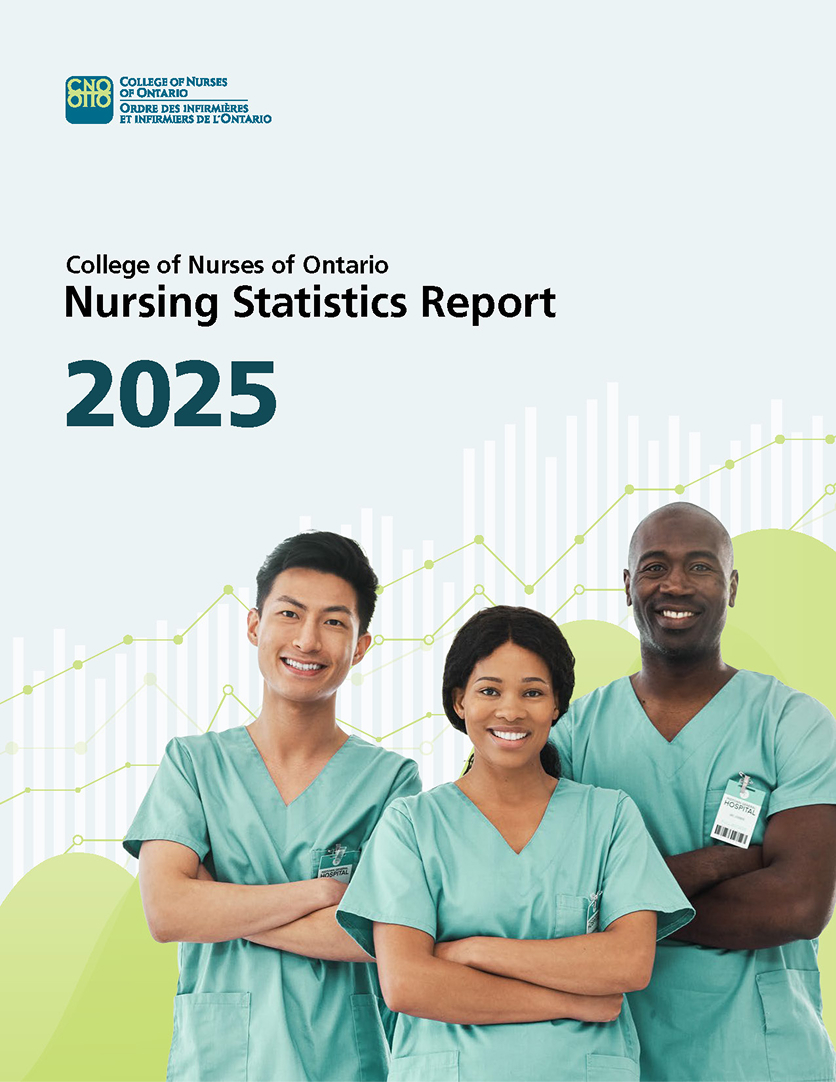Ontario is experiencing continued growth in nursing, according to CNO’s newly released Nursing Statistics Report 2025.
In 2025, the total number of nurses qualified to practice in Ontario’s health care system grew by nearly 4%, the largest increase since the COVID-19 pandemic.
Among other notable trends, CNO found internationally educated nurses (IENs) are playing an increasingly large role in fueling the latest growth, and the overall mix of nurse types and employment patterns has continued to evolve.

CNO’s Nursing Statistics Report 2025
In addition to the report’s release, CNO has updated its Nursing Data Dashboard, providing the latest 2025 nursing statistics in Ontario. A new feature for 2025 is the addition of data on new nurses and additional registrations.
“We are looking forward to sharing these important data findings with our health system partners to support them in health human resource planning and decision-making,” said Brent Knowles, CNO’s Director, Analytics & Research.
Latest trends and patterns
The supply of nurses in Ontario is expanding
- Ontario added 7,133 nurses to its health care system in 2025, an increase of nearly 4% from 2024.
- A total of 190,896 nurses renewed their certificate of registration with CNO in 2025.
The composition of nurse types within the supply is changing
- In 2025, the number of Registered Nurses (RNs) and nurses with dual RN and Registered Practical Nurse (RPN) status, continued to grow in the province (by 5% and 22%, respectively), while the number of RPNs remained steady.
- The recent growth in RNs and Dual RN/RPNs has led to RPNs representing a smaller proportion of the overall number of nurses since 2023.
IENs are a major driver behind the trends
- Though most new nurses remain Ontario graduates (over 54%), a large portion of the growth in nurses over the past year can be attributed to newly registered IENs.
- Further, a larger share of IENs are entering the profession now as RNs, compared to previous years when many registered with both RN and RPN designations.
- Among new RNs, internationally educated RNs have surpassed those educated in Ontario since 2023, and now account for over 53% of new RNs.
- There was also an increase in the first-time renewal rate for IENs in 2025 (just over 11%), even though IENs remain less likely to renew their registration after their first year in comparison to Ontario graduates.
Growth in the nursing workforce as employment dynamics are shifting
- Ontario has seen continued growth in nurses employed in nursing in the province (4%), while the number of nurses employed in nursing outside Ontario has remained relatively stable in recent years.
- The share of new nurses seeking nursing employment has gone up within the past year, particularly for RNs and IENs, by more than 5% for each group.
Read the full report now